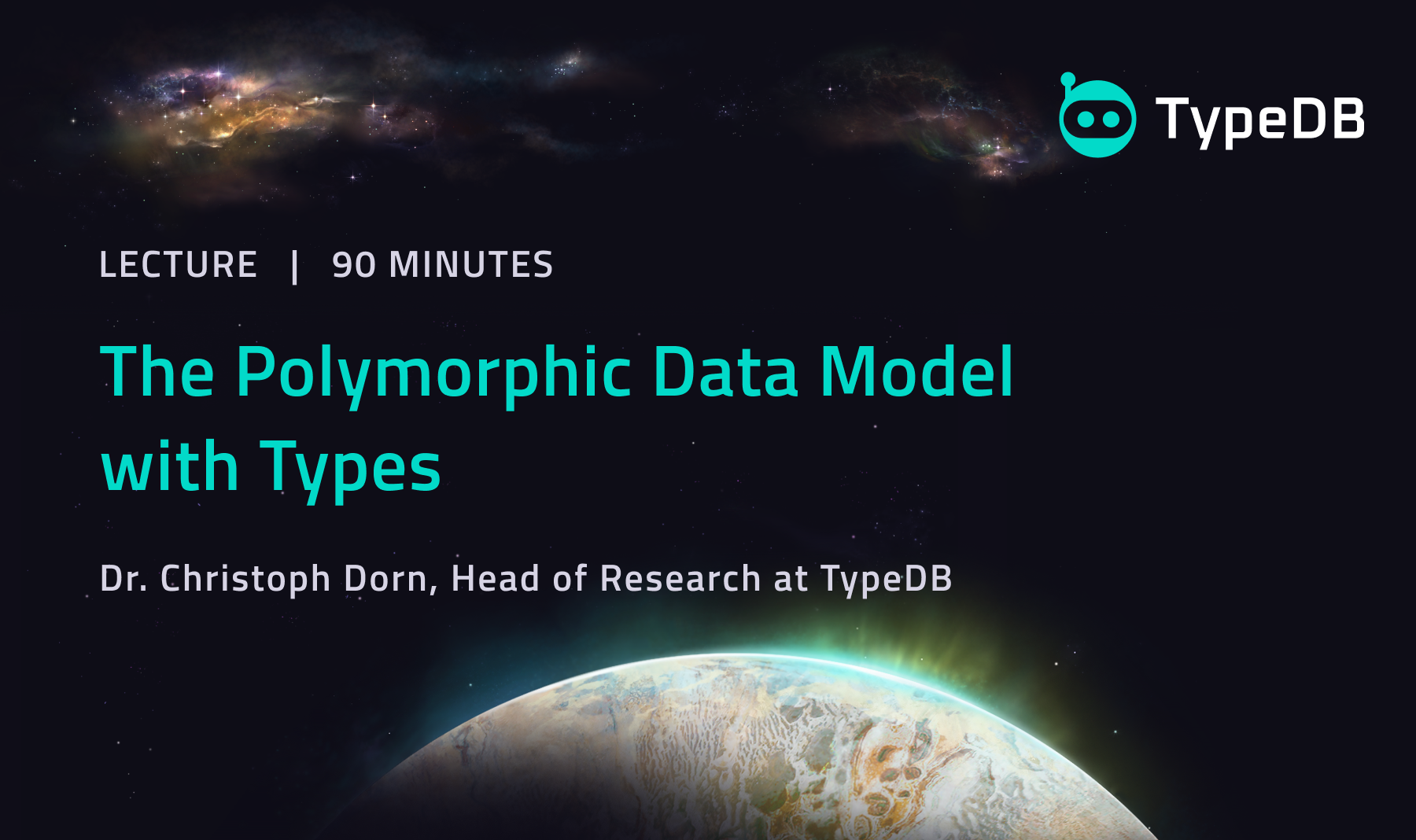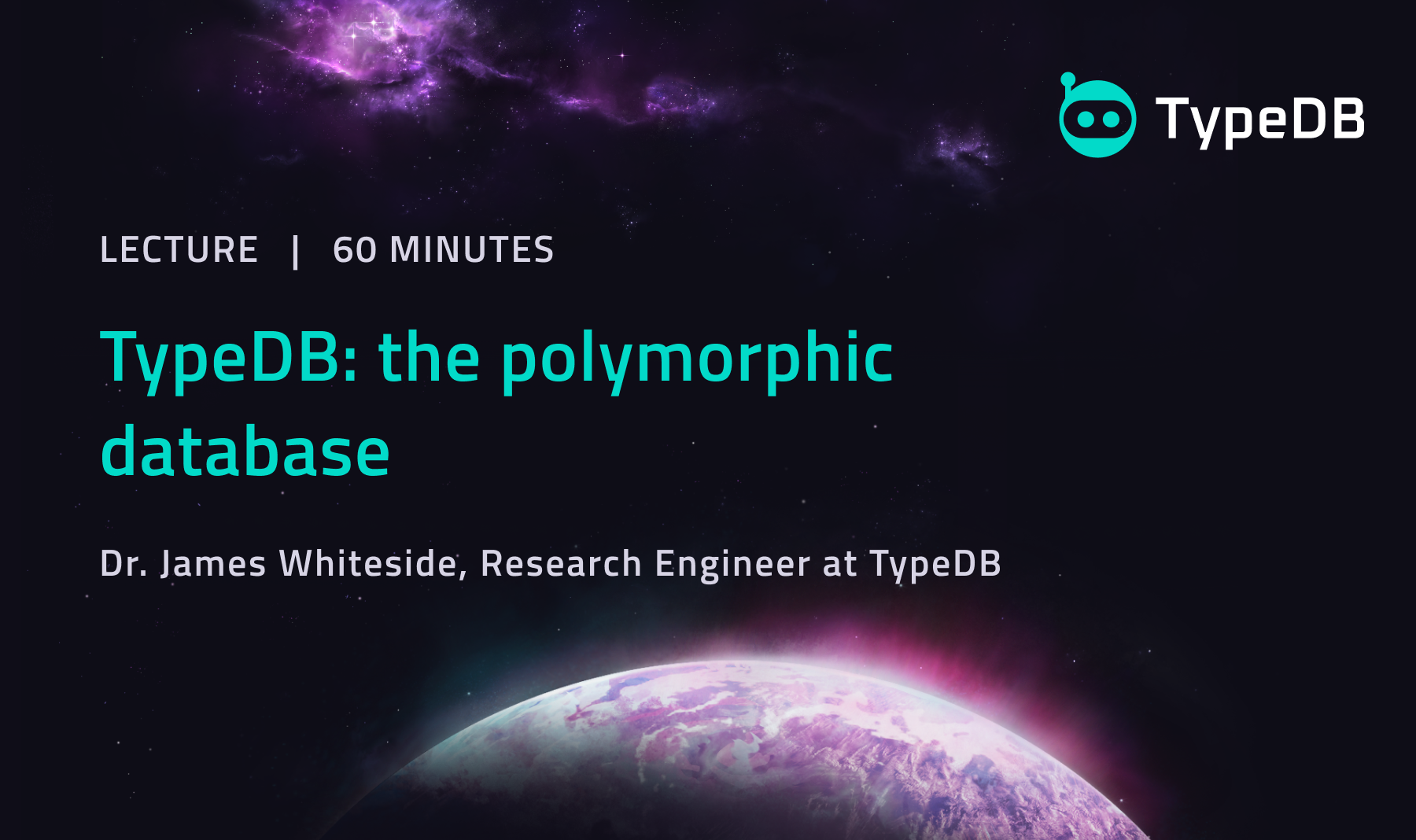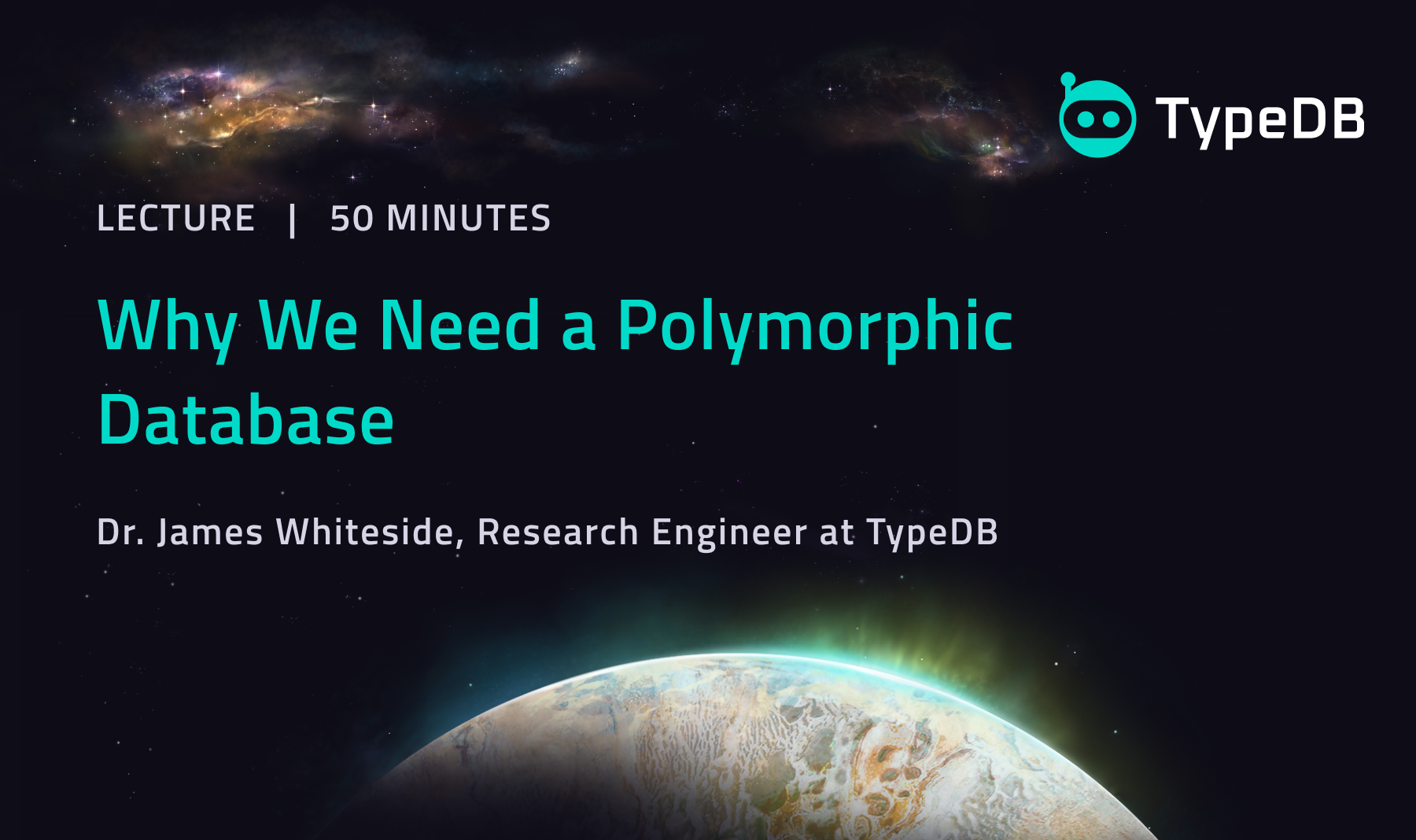TypeDB Lectures
Technical lectures on the foundations and applications of TypeDB & TypeQL

An introduction to TypeDB for language architects
TypeDB brings two foundational and far-reaching advances to modern database technology. First, TypeDB unifies all existing data models in a single universal framework, which is based on two simple but powerful ideas, and which elegantly eliminates the need for managing foreign keys, join tables, or nesting of data. Second, TypeDB's query language, TypeQL, provides intuitive access to the data model by constructing queries as typed patterns, and thereby abolishing the traditional operator-centric view of query languages and allowing users to write complex, nested queries using in a single elegant pattern. In this presentation, Haikal and Christoph discuss these two points in-depth, focusing on the joy of designing principled programming languages, and what the future will hold for TypeDB, its query language TypeQL, and its ecosystem.
All TypeDB lectures
Explore all our past and upcoming TypeDB lectures below.

An introduction to TypeDB for language architects
An introduction to TypeDB for language architects
Dr. Christoph Dorn, Head of Research at TypeDB Haikal Ryclova-Pribadi, Founder and CEO at TypeDB
Watch now 
The Polymorphic Data Model With Types
The Polymorphic Data Model With Types
Dr. Christoph Dorn, Head of Research at TypeDB
Watch now 
TypeDB: the Polymorphic Database
TypeDB: the Polymorphic Database
Dr. James Whiteside, Research Engineer at TypeDB
Watch now 
Why We Need a Polymorphic Database
Why We Need a Polymorphic Database
Dr. James Whiteside, Research Engineer at TypeDB
Watch now 
Type Theory as the Unifying Foundation for Modern Databases
Type Theory as the Unifying Foundation for Modern Databases
Dr. Christoph Dorn, Head of Research at TypeDB
Watch now